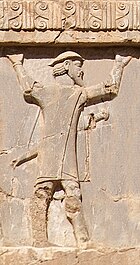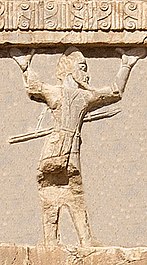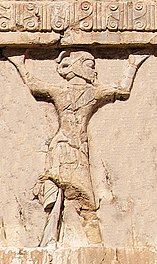Skudra
Jump to navigationJump to search

Skudra was the westernmost territory of the Achaemenid Empire, comprising the area of Macedonia and Thrace, to the north of Greece.
Skudra or Scudra (Greek: Σκύδρα) was a province (satrapy) of the Persian Empire in Europe between 510s BC and 479 BC. Its name is attested in Persian and Egyptian inscriptions (an Egyptian record of c. 498–497 BC, and a list on the tomb of Darius the Great at Naqsh-e Rustam, c. 486 BC.[1]). It is believed to have comprised the lands now known as Thrace and Macedon.[2]
N. G. L. Hammond hypothesizes that the name Skudra may have been the name originally used for this region by the Phrygians, who had settled in the area before migrating to Asia. Persian sources describe the province as being populated by three groups: the Saka Paradraya (“Saka beyond the sea”, the Persian term for all Scythian peoples to the north of the Caspian and Black Seas [3][4]); the Skudra themselves (most likely the Thracian tribes), and Yauna Takabara. The latter term, which translates as “Ionians with shield-like hats”, is believed to refer to Macedonians.[1]
The Thracian and Scythian regions were conquered by Darius I around 512 BC, the Macedonian kingdom by Mardonius in 492 BC. The latter had been a vassal of Persia since 512/511 BC, but remained having a large amount of autonomy.[5] The 492 BC campaign led by Mardonius made it a fully subordinate part of the empire.
The three ethnicities (Saka, Macedonian, Thracian) enrolled in the Achaemenid army, as shown in the Imperial tomb reliefs of Naqsh-e Rostam, and participated on the Achaemenid side to the Second Persian invasion of Greece. Only did the final defeat of the Achaemenids in the campaign free them from Persian control in 479 BC.


